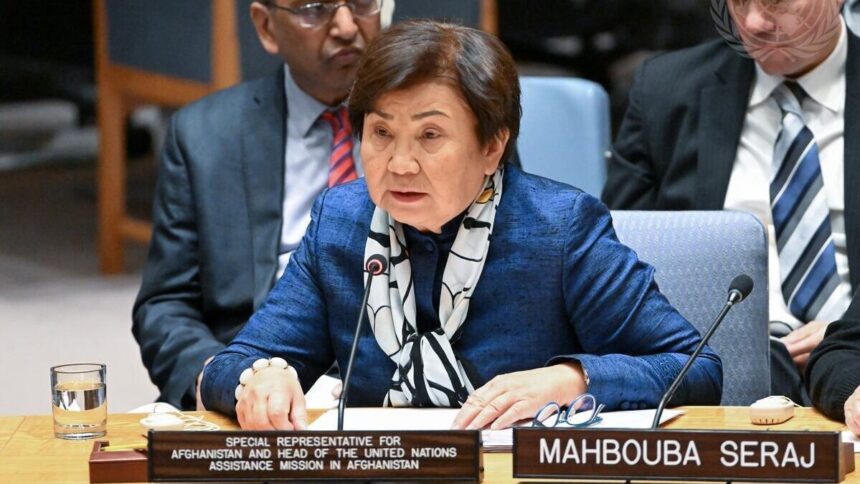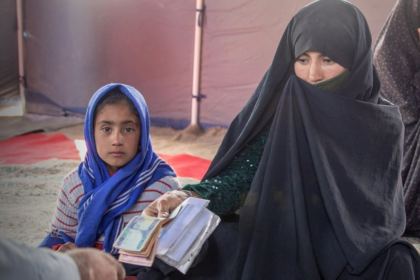RASC News Agency: Rosa Otunbayeva, the head of the United Nations Assistance Mission in Afghanistan (UNAMA), delivered a stark address during a special session of the UN Security Council on Afghanistan held on Wednesday, September 18. She underscored that the Taliban’s recently imposed morality law has dashed hopes for constructive dialogue with the global community. Otunbayeva noted that the Taliban’s participation in the Doha summit had initially kindled optimism for renewed talks; however, the enactment of this stringent law has swiftly derailed those prospects. She called the third Doha meeting an opportunity for the Taliban to hear the world’s concerns, particularly regarding human rights and the sweeping restrictions against women and girls.
“This law, with its extreme and oppressive limitations on the Afghanistani populace already denounced by the international community sends a deeply negative signal about the Taliban’s readiness for genuine engagement with the world. It is a message that cannot be ignored,” Otunbayeva declared. She further remarked that Taliban officials had criticized her for what they described as misleading and negative portrayals of Afghanistan’s current state. Addressing the Taliban directly, Otunbayeva asserted that every nation faces challenges, and no government can hope to resolve them by turning a blind eye. She urged the Taliban to take the United Nations’ concerns seriously, for the sake of the Afghanistani people and their future.
In her speech, Otunbayeva also highlighted the worsening humanitarian catastrophe unfolding in Afghanistan. Despite the enormity of the crisis, the United Nations has managed to secure only 30% of the funding it urgently needs $900 million out of a requested $3 billion. She revealed that 260 fixed and mobile health centers, which provide essential healthcare services, have been forced to close, affecting the well-being of 2.9 million Afghanistanis. Moreover, an additional 171 health centers are expected to shut down in the coming months.
As a result, nearly 900,000 children in critical need of medical treatment will be deprived of access to care. Food rations in impoverished, hunger-stricken areas have been slashed from 75% to 50%, disproportionately impacting women and children, who make up 80% of those reliant on aid. Furthermore, Otunbayeva emphasized that approximately 74% of Afghanistan’s rural areas have been devastated by drought and severe water shortages over the past year. Five million women and children are among those living in regions without access to clean drinking water.






